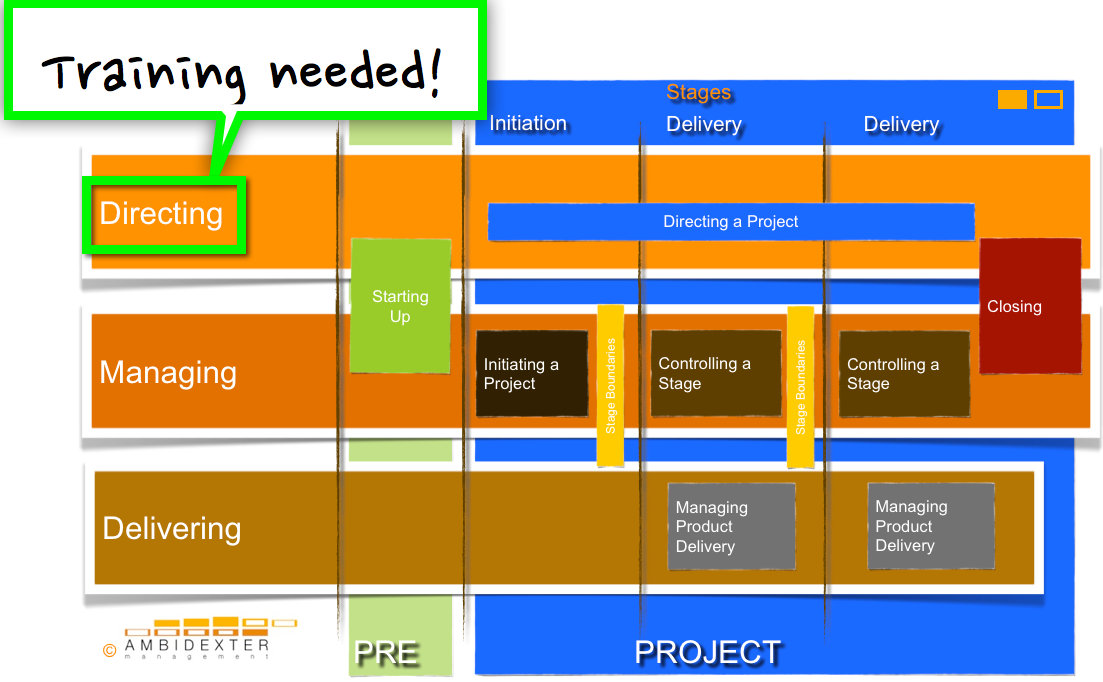The lower 20%...
- Details
- Created on Saturday, 26 October 2013 01:06
The lower 20%...
We train the wrong people!
- Details
- Created on Thursday, 25 July 2013 21:36
We train the wrong people!

Certification! Cui Bono?
- Details
- Created on Saturday, 07 May 2011 21:58
Over the last few weeks, an intense debate is ragging on the Project Manager Network, initiated by Miles Jennings. (Great discussion Miles!). The debate is about the question whether PMP certification is becoming more or less valuable.
I would like to take a different perspective and approach on this. Let us approach this from an evolutionary perspective. We should not argue whether there should be PM certification or not, just as we should not argue the value of wings or feet for that matter. Certification is here and here to stay (for a while)
The question to ask, from an evolutionary perspective, is: "Qui Bono?” or "Who benefits?"
The simple fact there is PM certification implies something/someone benefits. Moreover, as long someone/something benefits it will be there. Simple as that.
So, who are they?
1) Certification Standard Setting organizations that charge for membership and certification related products.
2) Certification education organizations that charge for training and education related products
3) Certification evaluation and granting organizations
4) Certification consultants
5) Certificate holders (higher pay, increased likelihood of job)
What do you think?
Can a project be a success and a failure at the same time?
- Details
- Created on Monday, 07 January 2013 19:02
Can a project be a success and a failure at the same time?
An 11 year "project" that resulted in a chapter 11 bankruptcy.

PMP Certification is irrelevant!
- Details
- Created on Wednesday, 11 August 2010 22:09
 In a recent study(1) by Deborah H. Stevenson, Jo Ann Starkweather, called 'PM critical competency index: IT execs prefer soft skills', the authors come to an interesting observation regarding the value placed on PMP certification by IT management executives:
In a recent study(1) by Deborah H. Stevenson, Jo Ann Starkweather, called 'PM critical competency index: IT execs prefer soft skills', the authors come to an interesting observation regarding the value placed on PMP certification by IT management executives:
"PMP certification is irrelevant as a core project management competencies or characteristics as valued by IT managers [US..] nationwide."
The study was conducted in two phases. Phase one was the establish a list of common project manager characteristics that IT recruiters look for in potential candidates for hire. They did by sending out a survey to 375 IT recruiters. The survey was first validated for content consistency by interviewing the author's industry contacts. As a result of the survey they established the Project Manager hiring criteria Index
|
Project Manager hiring criteria Index |
||
|
Ability to communicate at multiple levels |
Ability to deal with ambiguity and change |
Ability to escalate |
|
Attitude |
Cultural fit |
Education |
|
Experience |
Leadership |
Length of prior engagements |
|
Past team size |
PMP certification |
Technical expertise |
|
Verbal skills |
Work history |
Written skills |
Once the criteria were established they sent out a 32-item questionnaire to over 3200 IT mangers and executives. They asked them to indicate on 7-point Likert scale the relative importance of each of the 15 criteria.
|
1 |
2 |
3 |
4 |
5 |
6 |
7 |
|
Extremely Unimportant |
Unimportant |
Somewhat Unimportant |
Irrelevant |
Somewhat Important |
Important |
Extremely Importan |
The results show clearly that IT managers and executives rate soft, interpersonal skills highest.
|
The top three Extremely important rated criteria |
|
|
Ability to communicate at multiple levels |
76.6% |
|
Leadership |
74.0% |
|
Ability to deal with ambiguity and change |
50.0% |



